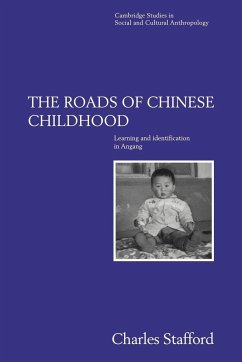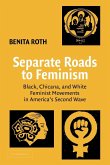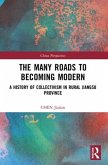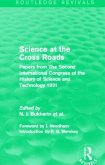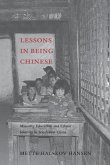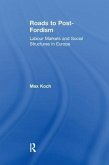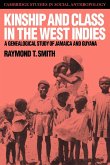A study of learning and childhood in the Taiwanese fishing community of Angang.
Children in the Taiwanese fishing community of Angang have their attention drawn, consciously and unconsciously, to various forms of identification through their participation in schooling, family life and popular religion. They read texts about 'virtuous mothers', share 'meaningful foods' with other villagers, visit the altars of 'divining children' and participate in 'dangerous' god-strengthening rituals. In particular they learn about the family-based cycle of reciprocity, and the tension between this and commitment to the nation. Charles Stafford's study of childhood in this community (with additional material from north-eastern mainland China) explores absorbing issues related to nurturance, education, family, kinship and society in its analysis of how children learn, or do not learn, to identify themselves as both familial and Chinese.
Review quote:
"Stafford is to be congratulated for bringing original insights into the key question of what Taiwanese children learn and how they learn it. Taiwan/China specialists, comparative students of childhood experience, and those seeking a clear, lively recent survey of working-class life in rural taiwan will find this an attractive book."
American Journal of Sociology
"A particular strength of the book is its description of how traditional Confucian values of filial piety are taught and learned....this book is definetly worth close study. The novice to Chinese culture, as well as those scholars who specialize in China, will find much of interest and importance in this work."
Nancy Abelmann, American Anthropologist
"The comparative notes to childhood oin northeastern China which form the epilogue are particularly insightful. This book will prove valuable to scholars and students of all cultures because of its concise study of the way children are given an introduction and education into their religious and traditional background."
Linda L. Lam-Easton, Religious Studies Review
Table of contents:
List of illustrations; Preface; Acknowledgements; Part I. Background: Introduction: 1. Two roads; Part II. Angang: 2. Ghosts are not connexions; 3. The proper way of being a person; 4. Textbook mothers and frugal children; 5. Red envelopes and the cycle of yang; 6. Going forward bravely; 7. Divining children; 8. Dangerous rituals; 9. Conclusion; Part III. Epilogue: 10. Notes on childhood in northeastern China; Notes; Glossary; References; Index.
Children in the Taiwanese fishing community of Angang have their attention drawn, consciously and unconsciously, to various forms of identification through their participation in schooling, family life and popular religion. They read texts about 'virtuous mothers', share 'meaningful foods' with other villagers, visit the altars of 'divining children' and participate in 'dangerous' god-strengthening rituals. In particular they learn about the family-based cycle of reciprocity, and the tension between this and commitment to the nation. Charles Stafford's study of childhood in this community (with additional material from north-eastern mainland China) explores absorbing issues related to nurturance, education, family, kinship and society in its analysis of how children learn, or do not learn, to identify themselves as both familial and Chinese.
Review quote:
"Stafford is to be congratulated for bringing original insights into the key question of what Taiwanese children learn and how they learn it. Taiwan/China specialists, comparative students of childhood experience, and those seeking a clear, lively recent survey of working-class life in rural taiwan will find this an attractive book."
American Journal of Sociology
"A particular strength of the book is its description of how traditional Confucian values of filial piety are taught and learned....this book is definetly worth close study. The novice to Chinese culture, as well as those scholars who specialize in China, will find much of interest and importance in this work."
Nancy Abelmann, American Anthropologist
"The comparative notes to childhood oin northeastern China which form the epilogue are particularly insightful. This book will prove valuable to scholars and students of all cultures because of its concise study of the way children are given an introduction and education into their religious and traditional background."
Linda L. Lam-Easton, Religious Studies Review
Table of contents:
List of illustrations; Preface; Acknowledgements; Part I. Background: Introduction: 1. Two roads; Part II. Angang: 2. Ghosts are not connexions; 3. The proper way of being a person; 4. Textbook mothers and frugal children; 5. Red envelopes and the cycle of yang; 6. Going forward bravely; 7. Divining children; 8. Dangerous rituals; 9. Conclusion; Part III. Epilogue: 10. Notes on childhood in northeastern China; Notes; Glossary; References; Index.

